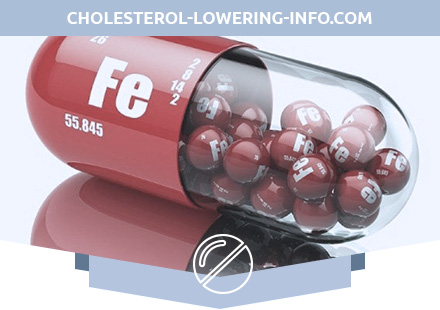What is Iron Deficiency?
Anemia is an iron deficiency in the body.
Anemia, or anemia, is a pathological condition characterized by a decrease in hemoglobin concentration and, in the vast majority of cases, the number of red blood cells per unit volume of blood. Hemoglobin is a protein that is found in red blood cells (red blood cells) and carries oxygen from the lungs to the tissues and organs of the body.
Anemia occurs during all periods of a person’s life, not only with various diseases, but also with certain physiological conditions, for example, during pregnancy, during a period of increased growth, and lactation. The most common cause of anemia is iron deficiency in the body (iron is necessary for the production of hemoglobin).
Causes of Iron Deficiency
Iron deficiency in the body can be caused by a number of reasons:
- A lack of iron in the diet. This phenomenon is especially common among children and young girls. Iron deficiency threatens children who drink a lot of milk but don’t like foods rich in iron, and girls who follow fashionable diets.
- Enhanced body growth. Children under 3 years old grow so fast that their body does not have time to produce the required amount of iron.
- Pregnancy. Women during pregnancy or breastfeeding (lactation) need two and a half times more iron than men. Therefore, pregnant women are advised to take anemia tests and enrich their diets with foods high in iron (such as apples) or take iron supplements daily.
- Blood loss. This is one of the most common causes of iron deficiency in adults. For example, heavy menstruation can cause anemia. Blood loss can also be associated with internal bleeding, for example, in the gastrointestinal tract. A stomach ulcer, ulcerative colitis, cancer, or prolonged use of drugs such as aspirin and the like, can cause stomach or intestinal bleeding. Therefore, it is so important to determine the cause of iron deficiency in the body as soon as possible.
Symptoms of Iron Deficiency
Symptoms of Anemia
- Often there are no symptoms
- Pallor
- Fatigue
- Unusual shortness of breath during sports
- Fast heartbeat
- Cold palms and feet
- Brittle nails
- Headaches
Diagnosis of Iron Deficiency
If you suspect you have anemia, consult your doctor. To diagnose anemia, a blood test is prescribed. To find out the causes of the disease, a number of other tests are necessary.
Iron Deficiency Treatment
The treatment of anemia depends on its causes. So, if anemia is caused by blood loss, it is necessary to treat the cause of the bleeding. If anemia is caused by insufficient intake of iron-containing foods, your doctor will recommend changing your diet or taking iron supplements.
Iron Deficiency Prevention
Some types of anemia can be prevented, in particular, caused by a lack of iron in the diet. To prevent such anemia, enrich your diet with iron-rich foods, an indicative list of which is given below.
- seafood
- dried fruits – dried apricots, prunes and raisins
- nuts
- beans especially lima beans
- green leafy vegetables like broccoli and spinach
- reed molasses
- whole grains
- fortified bread and cereal

